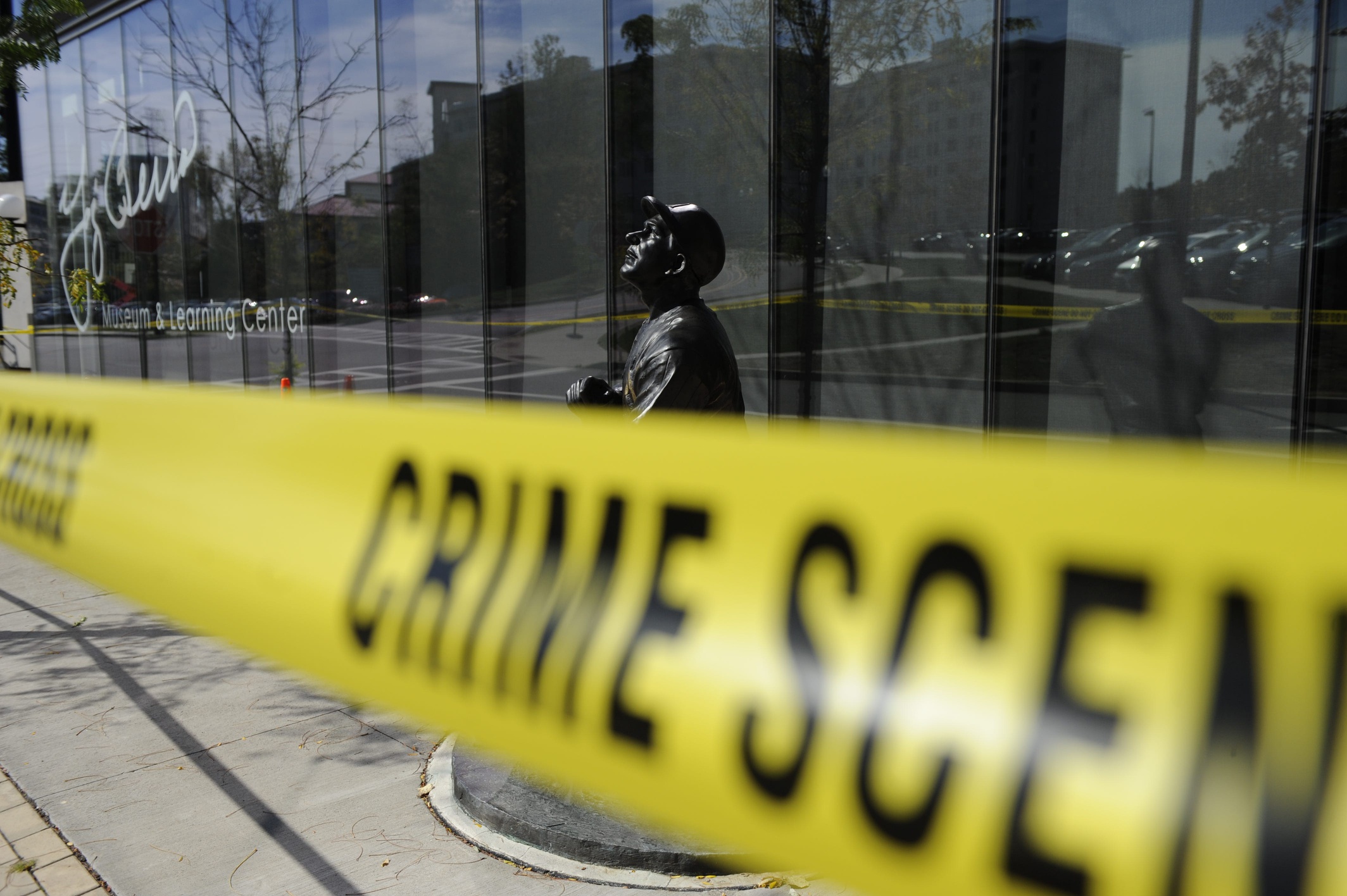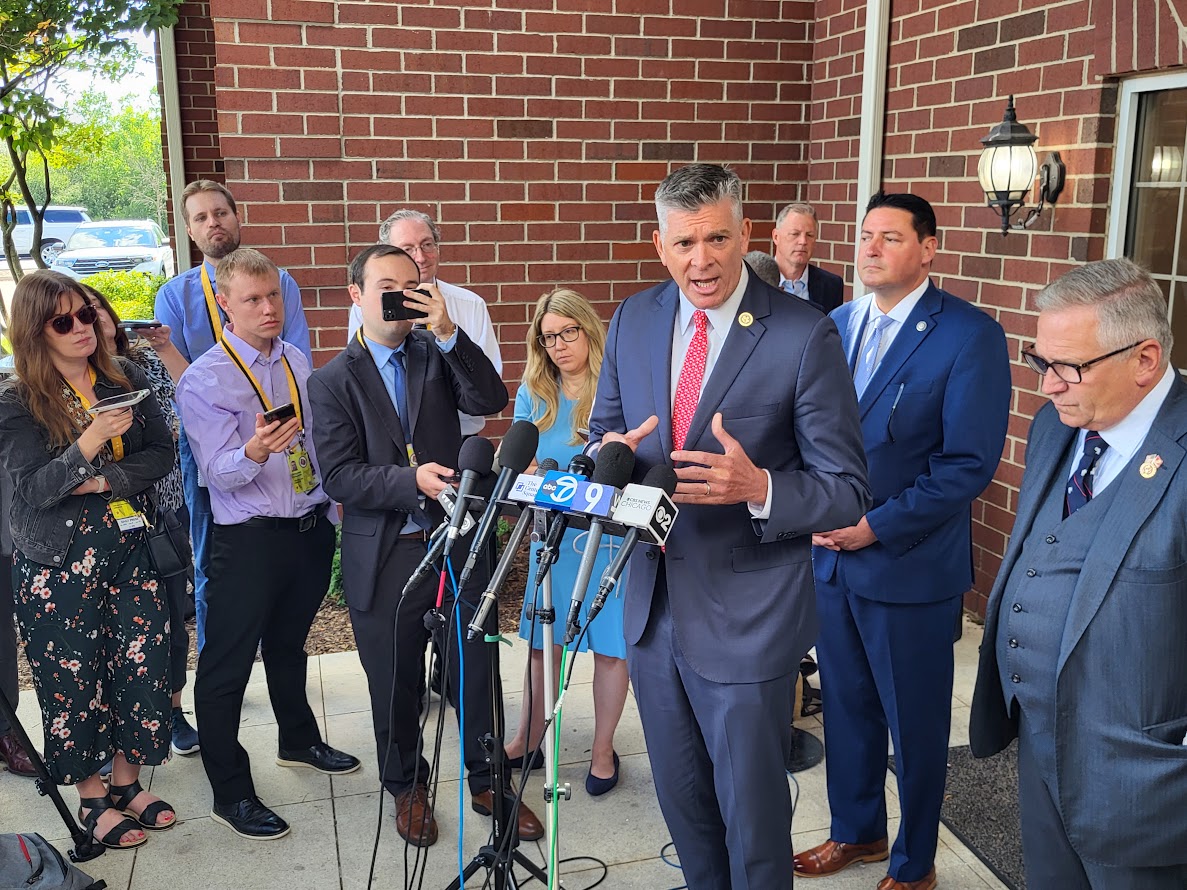http://abcnews.go.com/Health/men-teach-elementary-school/story?id=18784172#.UVGk0xfvuxB
From ABC News
By SUSAN DONALDSON JAMES
March 25, 2013
When Philip Wiederspan began teaching first-grade at age 25, he was the only male, except for the gym teacher. His former New Jersey college friends would look at him in shock when they learned his profession: "How can you do that? You must have a lot of patience."
"It requires a lot of patience," he said. "They are babies when they come in, just out of kindergarten, and by the end of the year, they are independent and can work on something by themselves for 10 minutes. Then they come back in September and, my God, they're babies, again."
Today, at 51, Wiederspan has devoted more than half his life to the youngest students at Upper Freehold Regional Elementary School in Allentown, N.J.
"Word got out my first year of teaching," he said. "Parents would call the office to come and visit my classroom to see if they wanted their kids in my class. I remember that distinctly … they just wanted to see."
As a man, Wiederspan is a rarity in U.S. elementary-school education. And experts say that as boys continue to lag behind girls academically, schools could use more male teachers.
(Full disclosure: This reporter's son, now 31, was a student in Wiederspan's first-grade classroom and thrived having a male role model, later going into teaching himself.)
"I am definitely not a mommy figure," said Wiederspan, who, after 17 years, moved up to third-grade. "Boys are a challenge. I try to draw them out. I use humor a lot and sometimes, when a kid is really shy, it's going to take a while for them to warm up."
"I relate to this age group," he said. "I am a big kid."
For the past 20 years, the numbers of male teachers in elementary and middle school grades have stagnated at about 16 to 18 percent, according to MenTeach, an organization whose mission is to increase the number of males working with young children.
There were no statistics for grades K-3, but in 2011, the most recent year for which there are data, only slightly more than 2 percent of kindergarten and preschool teachers were male.
"The gap and discrepancy between girls' performance and boys' performance is growing ever more marked," said Massachusetts psychologist Michael Thompson, co-author of the groundbreaking 2000 book "Raising Cain," which argues that society shortchanges boys.
"There are lots of explanations for it," he said. "One is the nature of the elementary classroom. It's more feminized and it does turn boys off, perhaps because they are in trouble more or because the teaching style is more geared to girls' brains.
"You go to an elementary school and there isn't a man in sight except the custodian, and the kids love him," Thompson said.
The odd man who teaches is well liked, but often treated like the "school mascot."
"Having male teachers, boys have a model that it's OK to be male and be in the classroom," he said. "School isn't just a female enterprise. That's what the presence of a man says to kids."
Pete Ellenzweig, 58, has spent more than three decades in K-4 classrooms in a suburban school district outside Portland, Ore.
"I have never felt as if I were under any particular type of scrutiny, not even once," he said. "I think a parent asked me in 1990 or '91, 'Isn't that an unusual career choice?' I replied, 'I don't think so. It's been amazing.'"
There are two male kindergarten teachers and five out of 17 in his building who teach in other grades are men. He said his school district began recruiting males "years ago."
While Ellenzweig said he believes men make great teachers, a student's gender "just doesn't enter my world view."
"I do everything possible to treat people equitably," he said. "And that means having the same types of behavior expectations in the classroom and the same long-term belief in the capability of each kid. …I think there are gender differences in terms of maturity, but it doesn't affect my day-to-day work with children."
Teacher Wiederspan admits that his class of 24 students — mostly 8-year-olds — is "a handful," especially the boys.
"They have a lot of energy and they don't always know how to properly release it," he said. "Something physical happens. They trip over someone, then it escalates. It was an accident, but then it becomes, 'He did this and he did that.'"
Girls can sit still more easily and are more efficient at processing language. Many female teachers have a "pretty low tolerance" for boys, who are more active and like competition, according to psychologist Thompson.
In the past, girls began to lag behind boys as they entered high school, particularly in science and math. But efforts in the past few decades have paid off. Today, 60 percent of all college graduates are women.
"Most boys are not falling off the cliff, but when we took the shackles off girls, they began to zoom," Thompson said.
Organizations like the National Education Association have called for efforts to support young men interested in teaching, but many are discouraged by the relatively low pay, especially if they are the primary breadwinner.
Stereotypes about male teachers, and sometimes mistrust, persist.
"It's very hard to change the suspicion of men who are going to elementary education when there are so few of them," Thompson said. "Schools ask me to talk to men on their faculty and when I sit with them behind closed doors, they say the moms look at them like potential pedophiles.
"If they are too nurturing or a mother comes in and sees a teacher reading in a chair and the child is leaning against the teacher or cuddling him, they freak out," he said. "Men tell me they only have to look in the mom's face to know what they are thinking."
That has never been the case with Wiederspan, he said, although when he first started teaching, mothers showed an unreasonable curiosity about what kind of a teacher he might be.
"I would have literally four or five parents sitting at a table at a certain point in the year observing me," Wiederspan said. "And it was nerve-wracking as an untenured teacher."
He's now comfortable in his role, still teaching among only a handful of male teachers, seven in all, three of whom are gym teachers.
"I have high expectations and I lay that out in the beginning and reinforce it throughout the year," he said.
"I am definitely strict, but I am fair. … And there are boundaries."
Just a few weeks ago, for instance, a female substitute teacher had trouble with three students, all boys.
"When I came back, there was a whole note, three incidents, and the kids were sent to the principal's office. I took them aside and told them, 'You know, I am disappointed.' … They will take advantage."
Married with three children, a 20-year-old daughter and 11-year-old twin boys with autism, Wiederspan sometimes laughs that his classroom is easier than the demands of fatherhood.
After 27 years, he says, "I still like being with the kids. You can joke with them and you don't always have to be so serious. It's like being a dad, but they get to go home."









